How to write like a bestselling author (in five tips)
What I learned when I met David Nicholls
This week, the inimitable David Nicholls joined me on the Inklings Book Club podcast (available on Apple Podcasts and Spotify) and shared valuable writing tips that I think all budding authors ought to hear.
David Nicholls is the author of six novels and still at the top of his game – this year, his newest release You Are Here has been topping the bestseller charts once again… for five weeks in a row.
I was especially interested to talk to David because many of his books are high-concept. In One Day – which has been adapted into a movie and a Netflix TV show starring Leo Woodall and Ambika Mod – we follow two characters, Dexter and Emma, throughout their lives. They first meet on St Swithins' Day as students, with each proceeding chapter set on the anniversary of that date so that we see how their lives develop year-by-year. Meanwhile, his novel Us introduces a couple who have been together for 20 years, taking a trip across Europe to save their marriage. His newest offering, You Are Here, follows Marnie and Michael on a hiking trail. Despite their initial awkwardness and trepidation, they gradually reveal themselves to one another as they traverse this great landscape. It’s a novel full of heart and humour.
I wanted to ask David how he plots these carefully crafted narratives and keeps track of the ‘journey’ the characters embark upon. I was intrigued to know how he writes such believable protagonists, as well as how his passion for adapting other people’s novels for the screen has contributed to his own writing.
I found the entire conversation so fascinating, especially because David’s writing was part of the reason I fell in love with reading as a teenager.
Here are the top five things I learned from our chat:
1. Create a sketchbook of rough ideas and miscellaneous writing before you start actually drafting The Novel – this’ll become your “grab-bag” of writing, which you can pull from whenever you get stuck
David says, “I spend a long time – often years – writing a kind of sketch-book – just pouring ideas into it, writing in a very uncensored way. Characters’ names are constantly changing, the story is changing, the setting is changing. It’s sometimes first-person, sometimes third-person, sometimes present-tense, past-tense… and this document gets pretty large, maybe 20,000 to 30,000 words.
When I do start writing The Novel, I tend to write chronologically. So I have two documents, I have the Proper Novel and I have a “sketch-book” – the messy one. Often, if I’m writing something that isn’t chronological, I’ll put it in the sketch book.
[...]
That cliché you see in the movies, about writing an opening sentence, then writing another perfect sentence, another perfect sentence, another perfect sentence – I think that’s a very hard thing to achieve. And you will get to a point where you don’t know what the next sentence is. Then how are you going to finish the novel?
If you have this big “grab-bag” that you can reach into and pull out things you love, or the things that interest you, or made you, that to me is a much more plausible way of getting to the end. So you have a whole set of resources to draw upon, rather than forcing yourself to write endlessly perfect prose. Otherwise, I think that’s a very, very, very hard thing to achieve.”
2. Get to know your characters before you start writing: it’s like an actor rehearsing before the performance
David says, “I know all of [the details about my characters] before I start writing, whereas I know a lot of novelists discover the characters as they go.
“For me, it’s much more analogous to the rehearsal process. You don’t perform until you know who your character is, who you are. That involves knowing their tastes, their clothes, their family background, where they were born.
“I also write a lot of speech that I won’t use. I need to know what they sound like, particularly if I’m writing in the first-person. For me, writing in the first-person really is like improvising your character, so you have to know the vocabulary, the sense of humour, the tone, the little verbal tics. I’ll do a lot of sketching of that before I start writing the novel.
“Some first-person voices are very strong, distinctive, and comical. Douglas in my fourth novel, Us, has a very particular way of speaking, and that manifests on the page in his writing style. Sometimes the first-person voice is much more neutral – for example, the main voice in Sweet Sorrow is more objective and less of a “character”. But, even so, I need to know the same things about them that an actor would need to know about the character they’re playing.
3. Your characters’ names can speak volumes. Take Dexter and Emma’s names in One Day, for example – sonically, when you say their names aloud, they actually tell you something about their characteristics.
I asked David how he names his characters, especially now that he’s onto novel number six. Don’t you run out of names after a while???? David says, “I wouldn’t use the name of a close friend, because I’d find it hard to separate my friendship and this new character.
“I definitely need to know the sound of the name. The name Dexter in One Day has an ‘ex’ which suggests sex, as well as the ‘D’ sound, which is quite hard. Whereas Emma has the ‘mm’ sound – a kind of skepticism, a kind of quizical notion. So those feel right.
“I do make lots of lists of names and I spend quite a lot of time searching for the right one, because if I were to change a character’s name halfway through a manuscript it would make me feel a bit insecure, like I hadn’t got it right. So I need to know who they are before I start writing.”
4. Start a brand new document for each draft of your novel, and print the old drafts out. Being able to see them on paper instead of a screen helps you to ‘kill your darlings’ (aka, not being too protective over your writing) and think more like an editor of your own work.
David says, “My first draft takes about a year, minimum. Then, the second draft I re-type from scratch – it’s not revised, it’s a whole new document. It largely overlaps with the first document, of course. I print it out, and I copy it out again. And then the third draft will take another three months. The fourth draft will take a month. Gradually, you’re getting nearer and nearer to what you want to achieve. [...] I do four fairly substantial rewrites.
“By doing this, you become an editor. You become aware of when you’re repeating yourself, or when you’re a little bit bored, or when something isn’t quite landing. You feel it differently from reading it off a screen, because when you read it off the screen, you’re a reader, not an editor, so you’re lulled into thinking this looks like a novel, this is great! I think it’s really hard to maintain the level of analysis that’s required to edit a manuscript just by looking at a screen. [...] I write again from scratch rather than editing the document.”
5. You can learn from everything you read – One Day was actually loosely inspired by Tess of the d’Urbervilles!
David says, “It’s hard to talk about, because it’s a bit of a spoiler, but there’s a scene in Tess of the d’Urbervilles (which I read when I was 16) where she looks in the mirror and she feels a shiver down her spine. She realises that you have a birthday, but you also have all these other anniversaries in the year. And there’s one particular day that lies “sly and unseen” in the calendar – and when I read that when I was 16, it just blew my mind, I thought what an amazing idea, that we’re living through all these hidden anniversaries.
“Years later, I worked on an adaptation of Tess and came upon that passage again. I thought, wouldn’t it be great to write about that day and not tell the reader, and so that was the starting point of One Day. Even though there’s very little overlap, tonally, between One Day and Tess, there is a sense of fatalism and chance. A lot of Thomas Hardy’s stories turn on if-only moments, sliding doors moments, like the letter that goes under the doormat – those kinds of things that send the story off into a particular direction. There’s a lot of that in One Day.
“The lesson I’ve learned, really, is even when you’re not writing like a particular novelist, you can learn from everything you read. Everything you read will give you an insight into how writing works, and if you can read like a writer, there’s no way of predicting which passage, idea, scene, or line of dialogue will end up impacting your own writing many, many years down the line.”
You can listen to the Inklings Book Club podcast on Apple Podcasts and Spotify, with new episodes every week. David shared so many other fascinating insights, and plenty more nuggets of wisdom… teach us, Sensei!!!
Coming up, Coco Mellors shares her writing tips, and Bridgerton’s Luke Thompson reveals what made him fall in love with the work of Fyodor Dostoevsky. Make sure you’re subscribed :)
Thank you for reading!!
Jack
Artwork by Lizzy Stewart




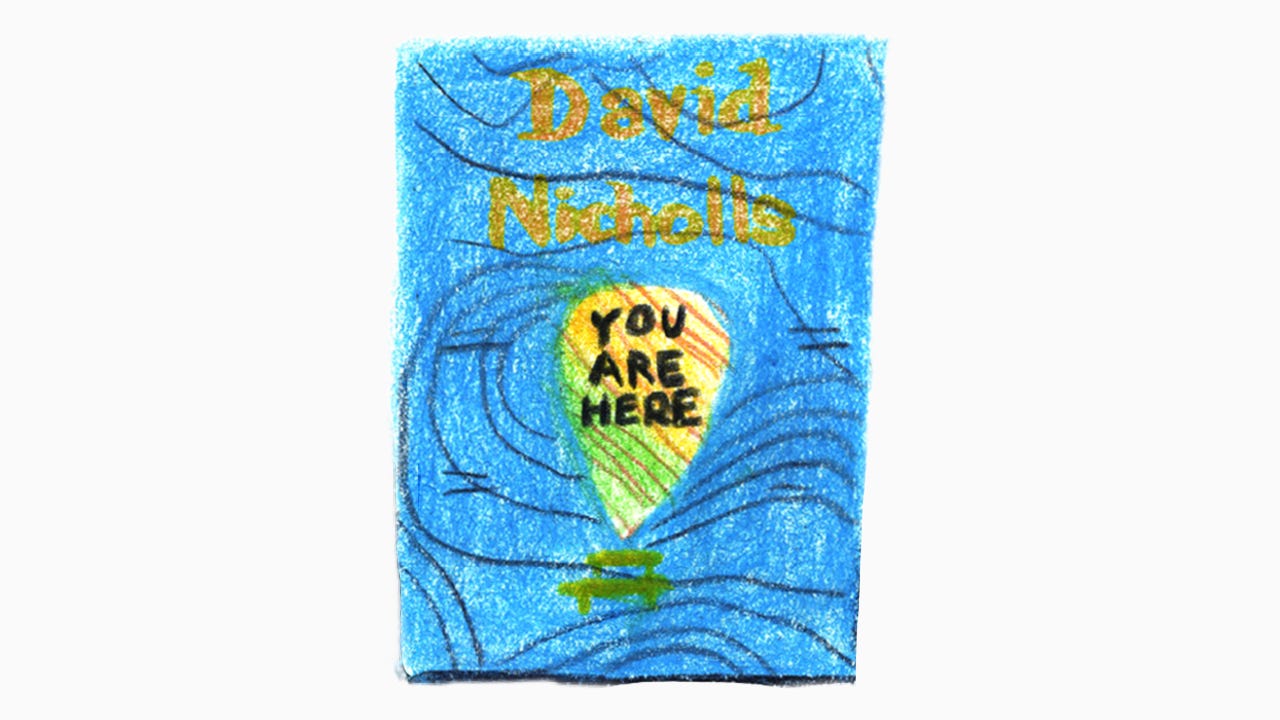
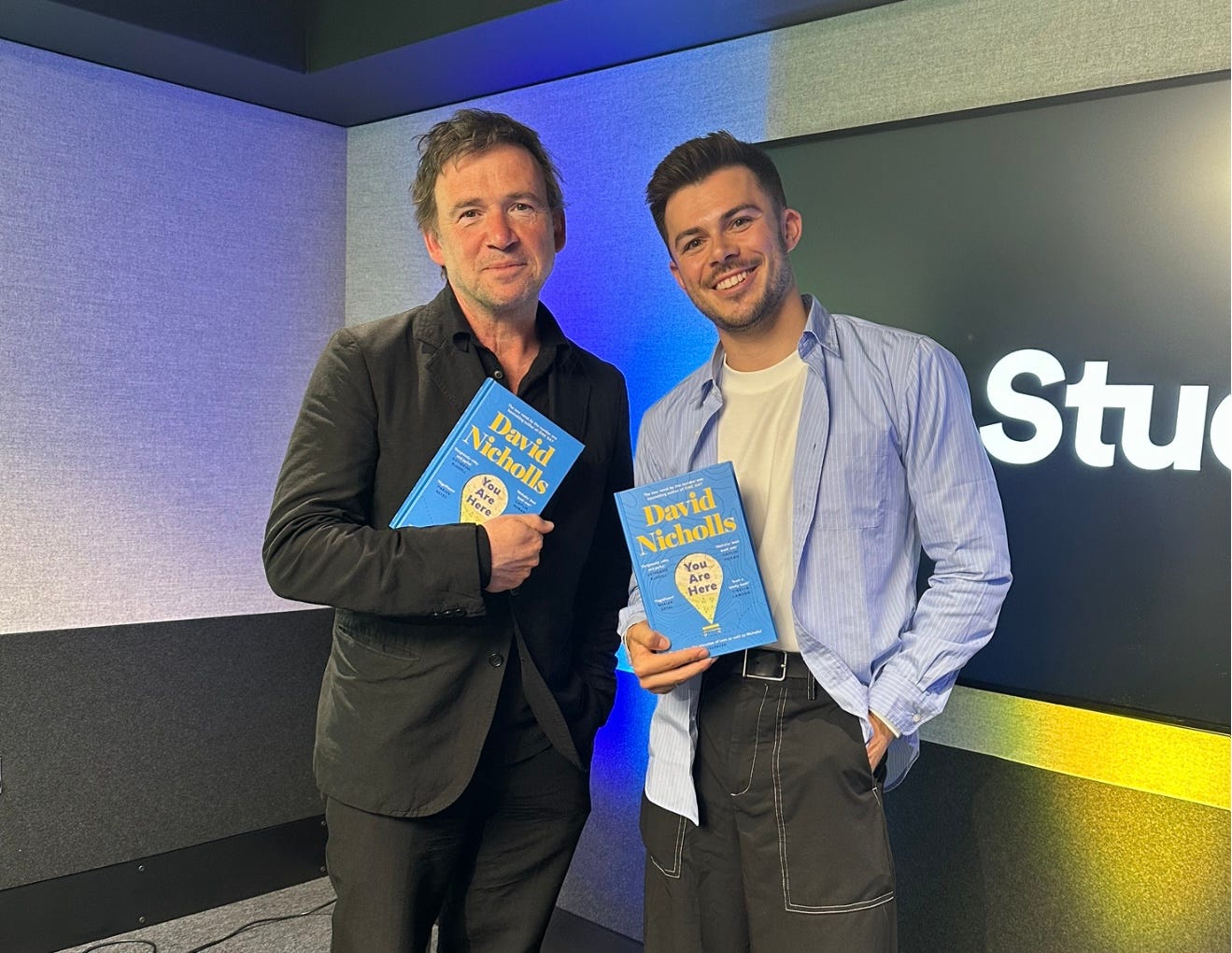
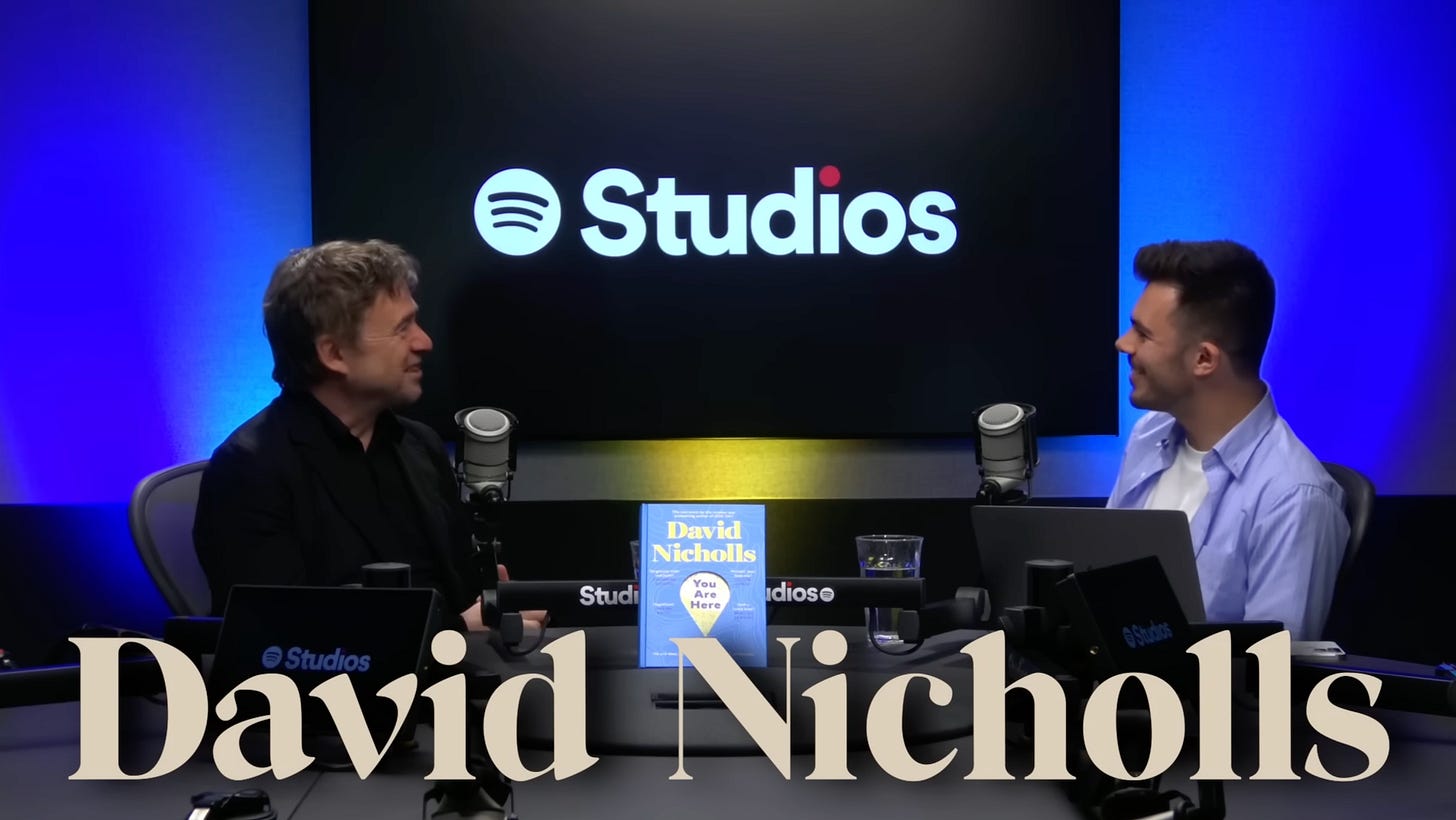

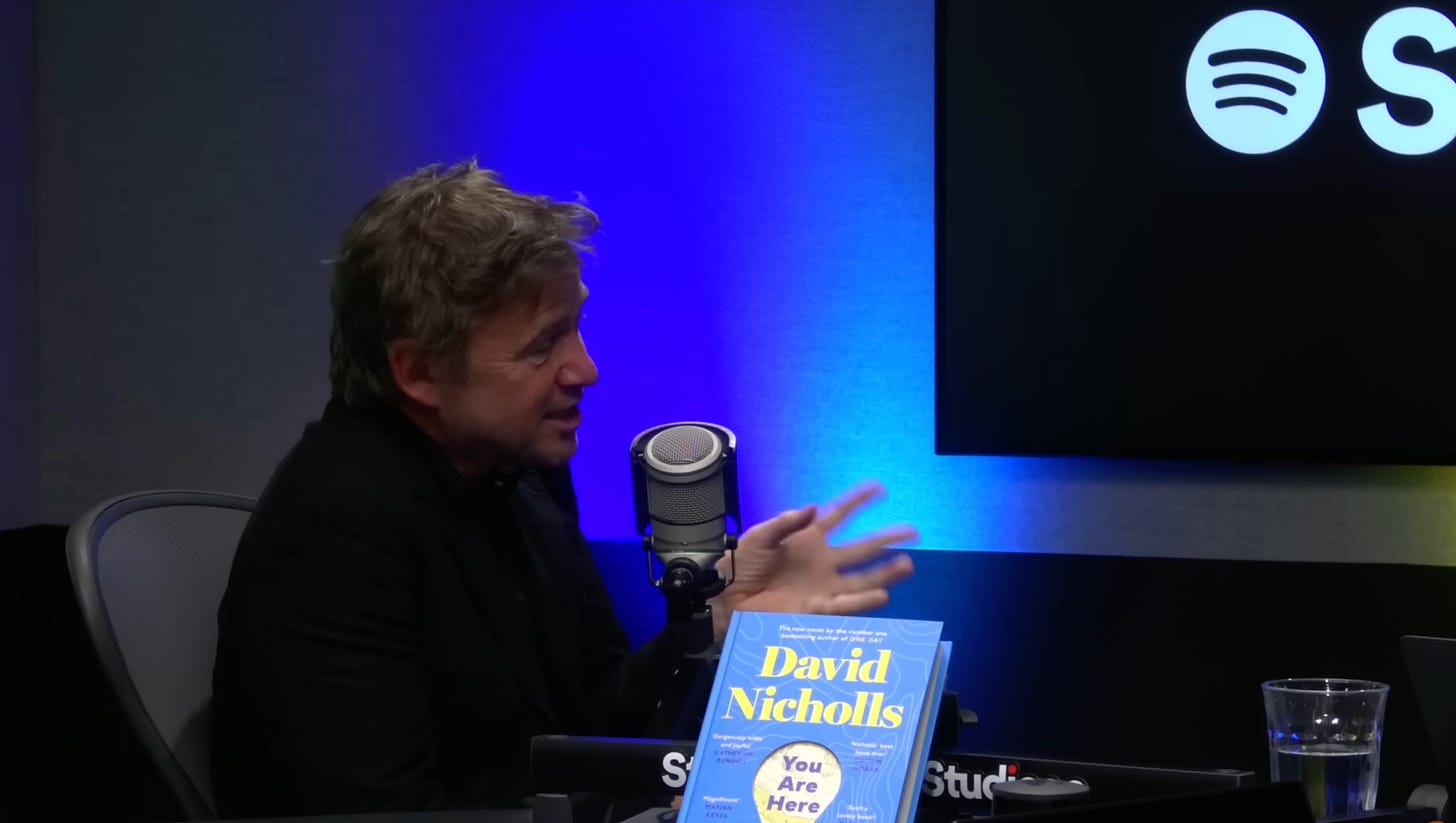
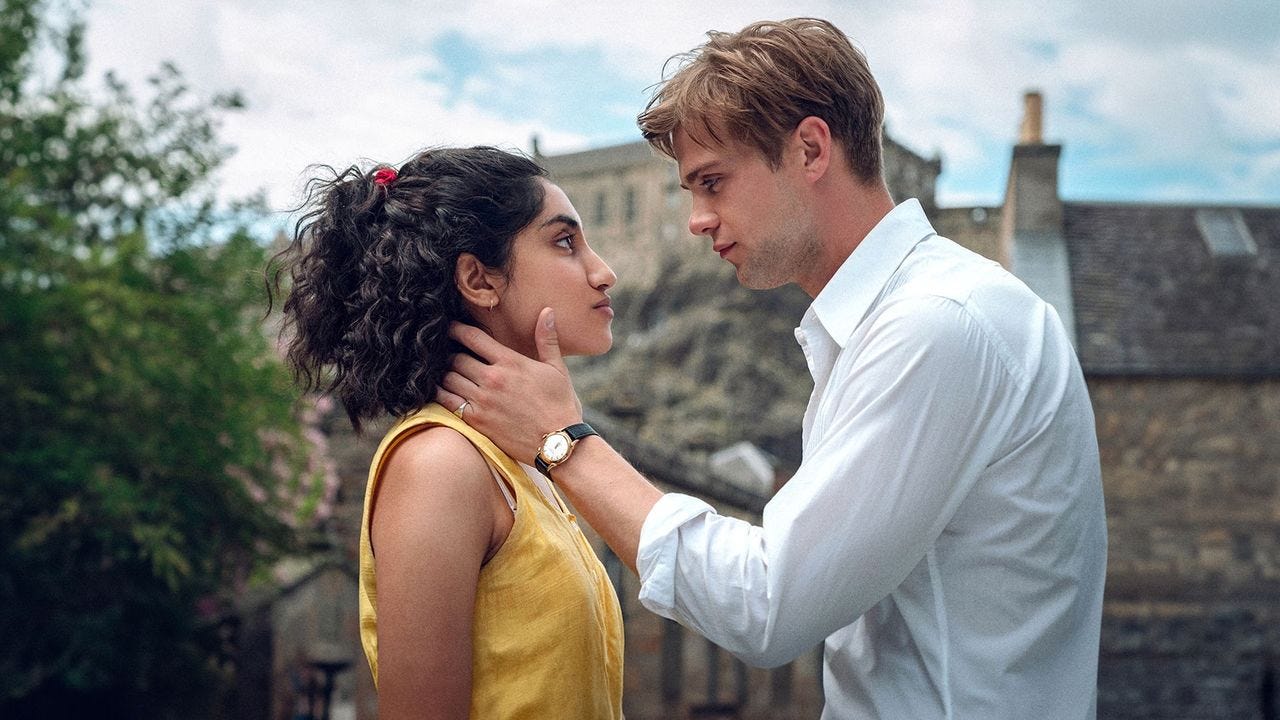


loved the podcast episode and the tips!
I once re-wrote my Substack newsletter from scratch and thought it was a flex. I am now humbled by good sir Mr. David Nicholls…
Great tips, thank you! Off to listen to the episode 🏃♀️💨